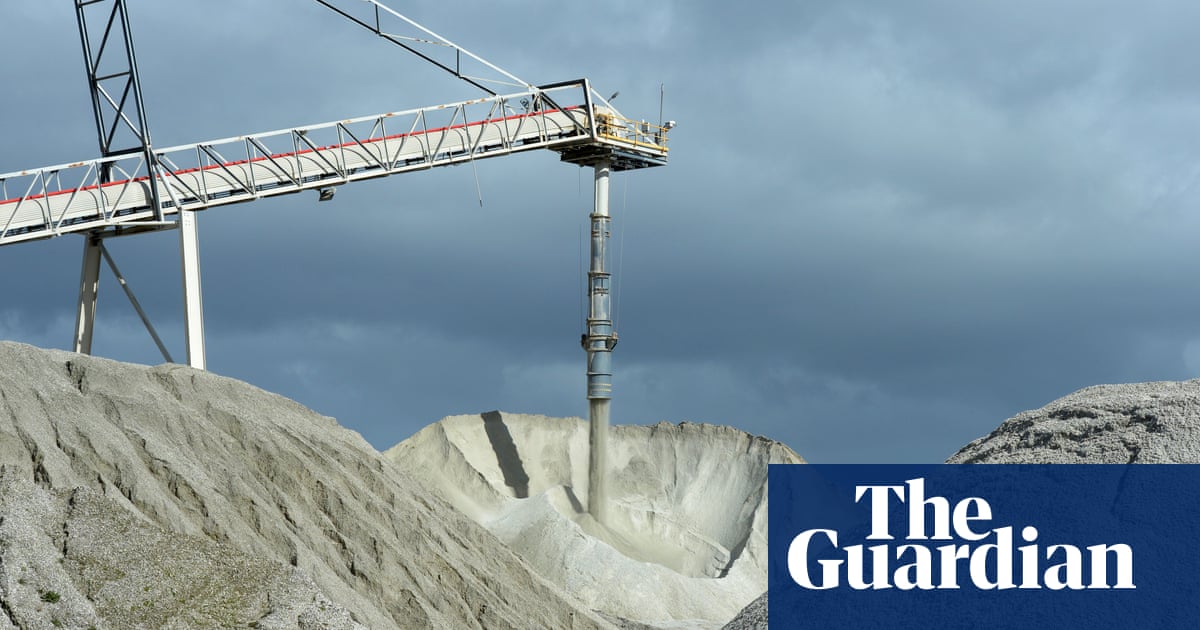
In the high-stakes quest to break China’s grip over minerals crucial to clean energy technology, Australia risks over-mining while ignoring alternatives such as improved battery recycling, according to a new report.
The release of the Jubilee Australia research, which questions mineral demand assumptions and warns against causing unnecessary environmental harm, comes as the federal government prepares a strategy to address China’s dominance of minerals seen as critical to a nation.
Jubilee said Australia could be digging up more critical minerals than necessary due to a rush to capitalise on “staggering predictions”.
“It is critical that we adopt a smarter and more efficient approach as we look to exploit another resource,” said the report’s lead author, Luke Fletcher.
“While the government’s strategy to make Australia a ‘renewable energy superpower’ will validly speed up the transition from a fossil fuel-based export economy, extracting these key transition minerals will cause significant social and environmental damage if we don’t manage it correctly.”
Critical minerals – such as lithium and copper – and its rare earths subset are used in everything from electric vehicle batteries and wind turbines to smartphones, high-powered magnets and defence technology.
China is a large producer of many of those minerals and often dominates the refining processes needed to make them useful. Mining of rare earths, in particular, can generate large volumes of toxic material and processing is complex, giving China a large head start over other other nations.
While Australia has large deposits of most minerals, it traditionally sends them offshore for processing.
Last month the resources minister, Madeleine King, told a Darwin audience that included key allies and trading partners that China’s position in the market posed a strategic challenge to Australia.
“Working together, like-minded partners can build new, diverse, resilient and sustainable supply chains as part of a global hedge against concentration,” she said.
The government position represents a green light to the mining sector to pursue projects that produce minerals that go into low-emissions technologies such as electric vehicles, batteries and solar panels, as well as defence applications.
There are also government grants available for companies developing mineral processing and manufacturing capabilities.
Jubilee questions whether Australia can mine itself out of a climate crisis.
after newsletter promotion
“One of the solutions to the carbon crisis is often portrayed, including in advertising by mining companies themselves, in the simplistic terms that this will require significant amounts of new minerals to be extracted,” the report said.
Jubilee said demand projections should be tested, and mining could be reduced through alternative sources of mineral supply.
Lithium-ion batteries, for example, are up to 90% recoverable, but only recycled in Australia at a rate of under 10%, according to Jubilee.
The report recommends increasing protections for Indigenous communities, given mineral extraction often has significant impacts on communities located near the deposits.
Rod Campbell, the research director at the Australia Institute, said policy was being made on the back of economic models with flaws and unclear assumptions.
“It’s high time some critical thinking was applied to policy on so-called ‘critical minerals’,” Campbell said.
“With clearer thinking and rational debate around electrification mineral use and extraction, the damage, inequalities and inefficiencies of earlier mining booms can be avoided.”


